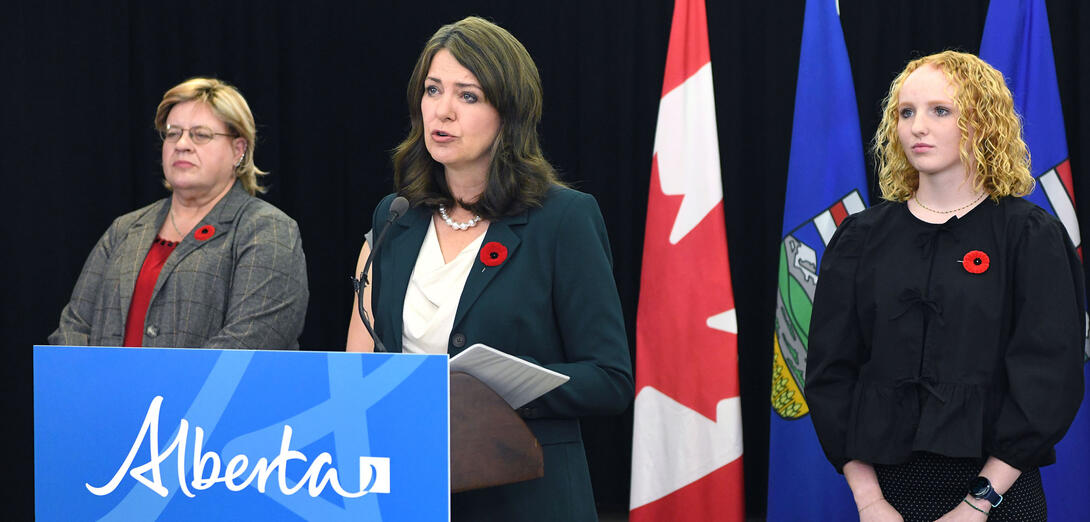In an era where literacy itself is in crisis, our priority as teachers is clear: we need to engage students in reading.
The data is sobering. With social media platforms such as TikTok, YouTube, Instagram and Snapchat capturing young people’s attention, books are being left behind. Over the past two decades, we have seen a 35 per cent drop in students who enjoy reading; today, only one in five students aged 4–18 reads for pleasure, according to a 2025 U.S. study. Research from the National Literacy Trust in the U.K. reinforces this global pattern, showing an ongoing decline in reading motivation and enjoyment among children and youth.
These findings signal that we need to focus on building strong, diverse, high-quality library collections and making reading an engaging activity. However, as we enter a new school year, schools are facing the need to devote time, resources and energy to comply with a ministerial order requiring the removal of books considered “sexually explicit.”
The push toward what some are deeming censorship or book banning began with an emotionally charged headline: “Sexually explicit books are available to kindergarten students.” Following this, Alberta Education released an online survey on school library books, which was presented as a “temperature check.” The survey’s results, garnered from only 0.02 per cent of Albertans, were then presented in misleading ways. For instance, it was reported that “some respondents affirmed their belief that sexually explicit material should not be available to students in schools at all.” But numbers matter, and the reality is that 30 per cent of respondents — only 0.00006 per cent of Alberta’s population — said this. Despite this, the results were used to justify the provincewide Ministerial Order #030/2025: Standards for the Selection, Availability, and Access of School Library Materials.
But who was consulted in creating this policy? Where were the voices of teacher-librarians, school leaders, literacy experts and developmental psychologists who best understand students’ needs? The omission of these critical voices is telling.
The consequences for schools and school communities are significant. Rather than investing in student supports, updating collections, training staff or creating vibrant reading cultures, schools must now divert scarce resources to review thousands of books for compliance with an order that includes a broad and unclear definition of “sexually explicit.” With vague guidelines in place, beloved books such as The Kissing Hand could be flagged and removed. Even more concerning, many of the titles under scrutiny represent 2SLGBTQIA+ communities, further narrowing students’ opportunities to see themselves reflected in literature.
This work also raises practical questions. With schools needing to meet the new standards by October 1, who will review school library collections? Alberta has very few teacher-librarians left. Will the responsibility of implementing the order fall to teachers already overwhelmed with full, complex classrooms? To administrators, pulling them away from supporting students? To educational assistants? Or to parent volunteers? How do you prevent one person from imposing their personal beliefs on entire school communities? Each option undermines professional decision-making and misuses valuable education time.
The result is predictable: many teachers are already removing entire classroom libraries to avoid conflict.
As Canadian School Libraries has said, “Not every book in a school library is meant for every student.” Collections are built to reflect the diversity of student populations, offering choice, challenge and opportunity. Parents, teachers and librarians can work together to guide students to appropriate materials. But blanket restrictions dictated by a small, unrepresentative group remove the voices of those directly involved in students’ lives. There is a difference between “MY child should not read this” and “NO children should read this.” This ministerial order actually serves to remove parental choice and autonomy.
This order gives a narrow set of voices the power to dictate access for all. Meanwhile, the deeper crisis remains ignored: many school libraries have been shuttered or underfunded for years, leaving impoverished collections that fail to inspire or reflect students’ realities.
If we want students to become thoughtful, empathetic citizens capable of critical thinking, we must put books back at the centre of our schools. That means investing in trained staff, revitalizing outdated and abandoned collections and ensuring that every student has the chance to see themselves, explore diverse viewpoints and find joy in reading. Our focus should not be on removing books but on offering great books for students to get excited about.
Karen Belter is currently completing her doctorate in school leadership and has served in K–12 schools as a teacher-librarian and school leader.
Lissa Davies has a master of education in teacher librarianship and has worked in education and school libraries for over 20 years as a teacher, consultant and administrator. She is passionate about ensuring that all students build critical thinking skills, a love of learning and a vibrant reading life.
Editor’s note: For the full list of references used in this article, please contact managing editor Lindsay Yakimyshyn at lindsay.yakimyshyn@ata.ab.ca.


